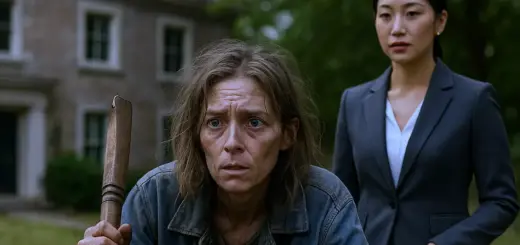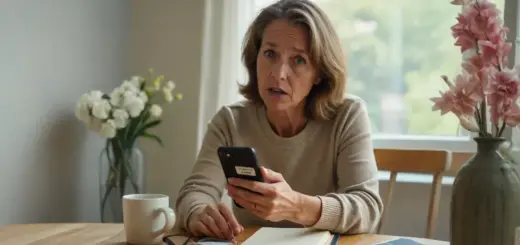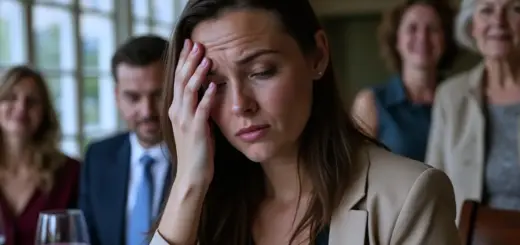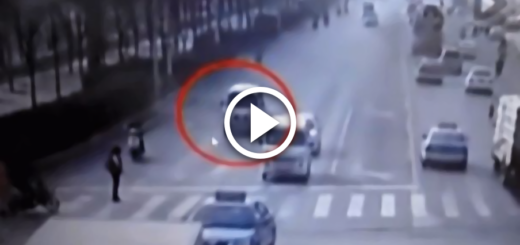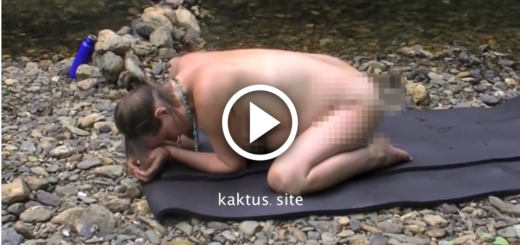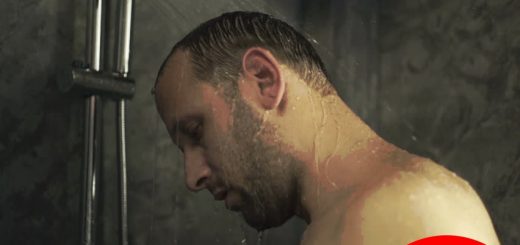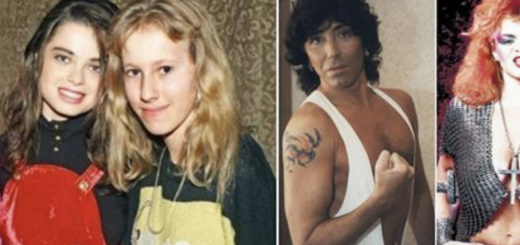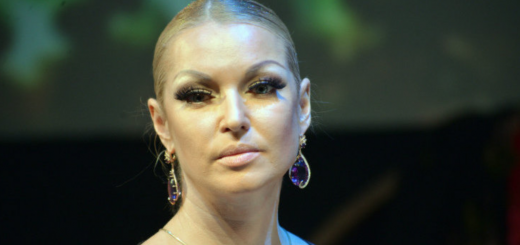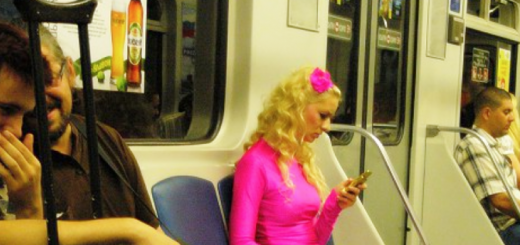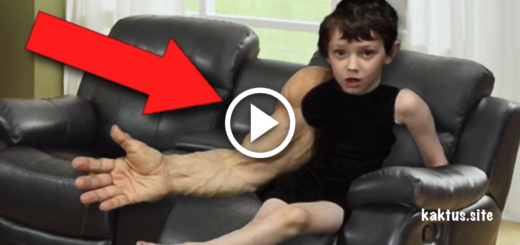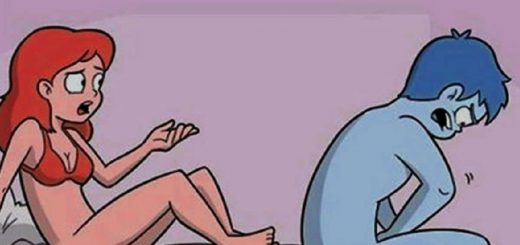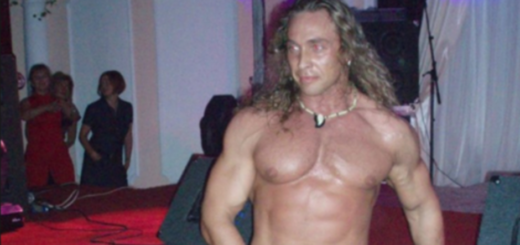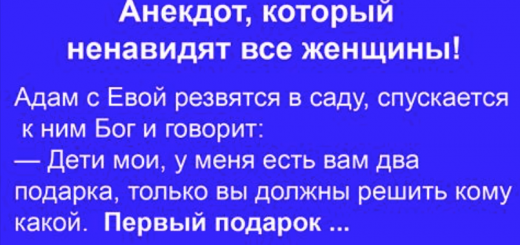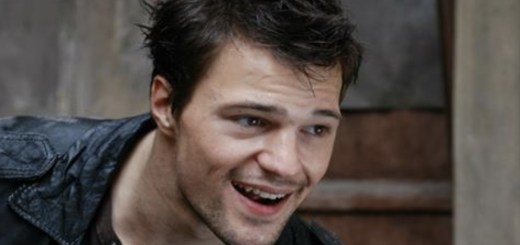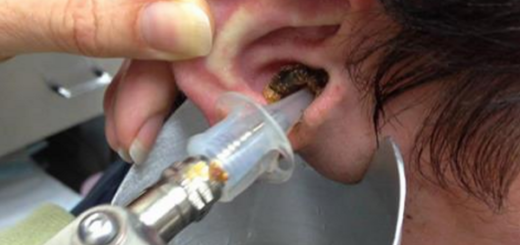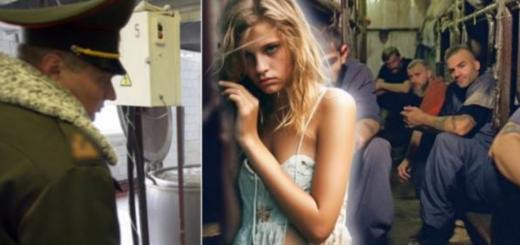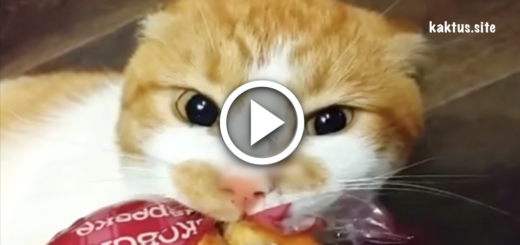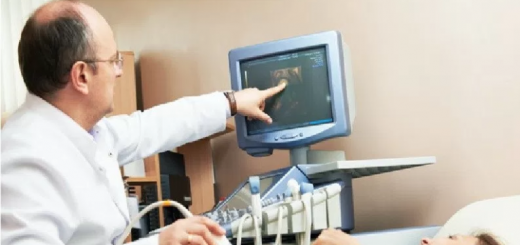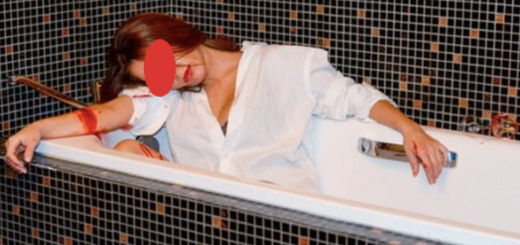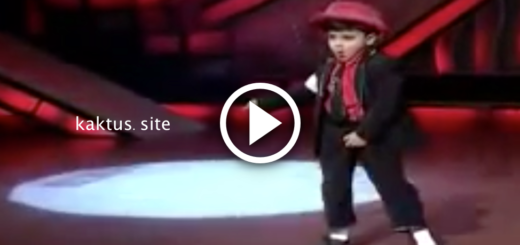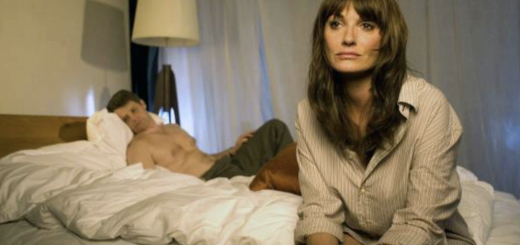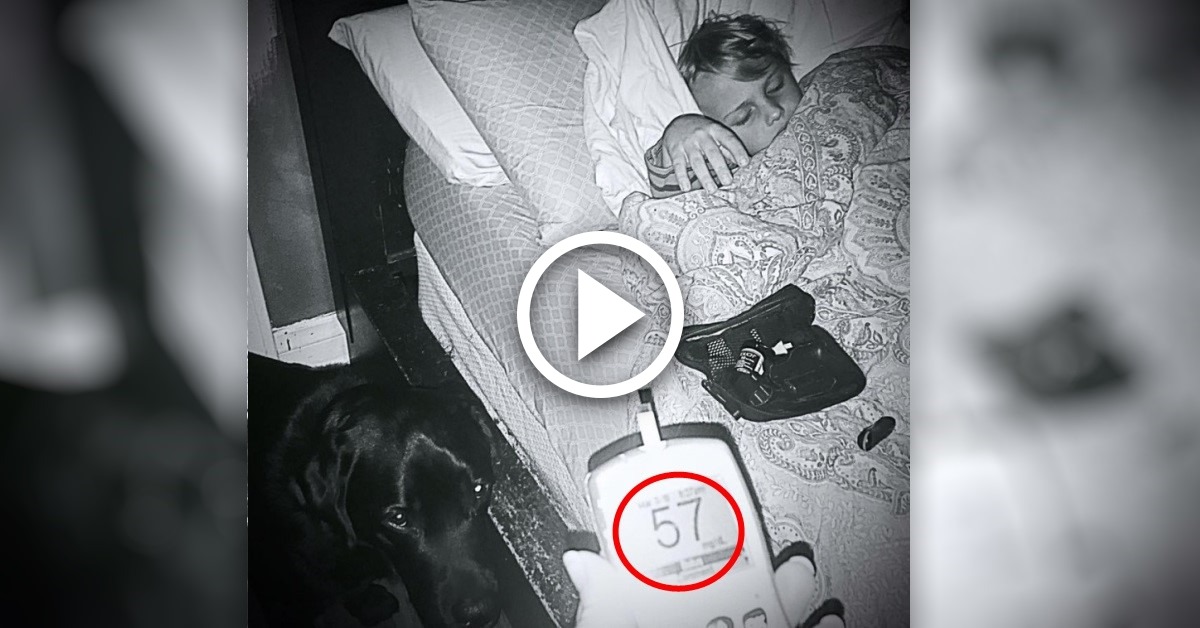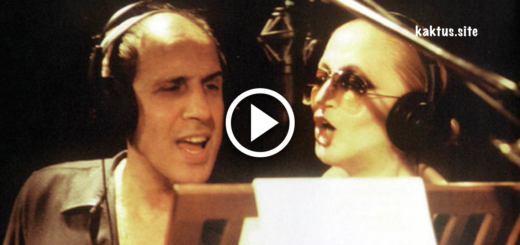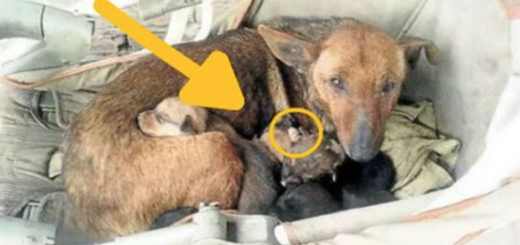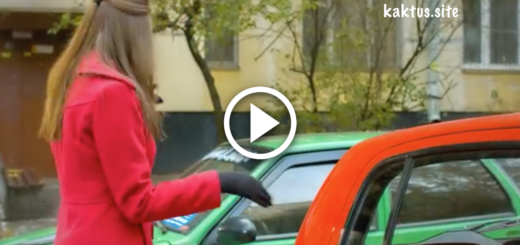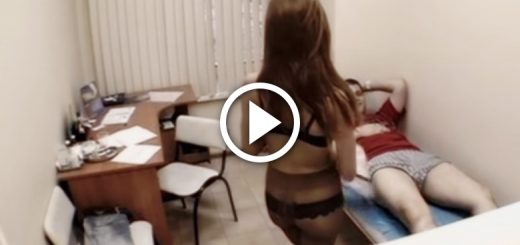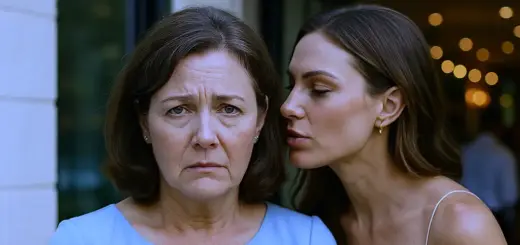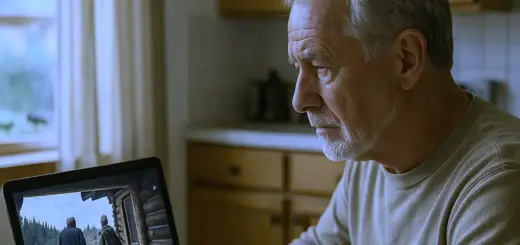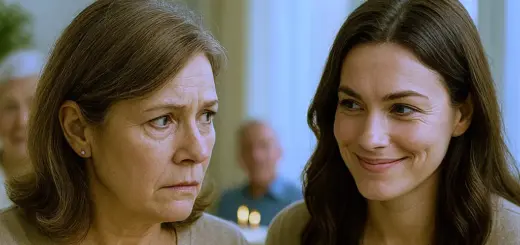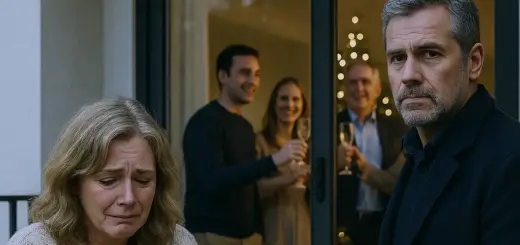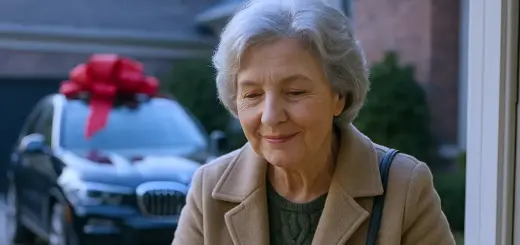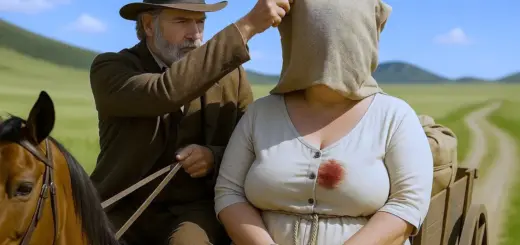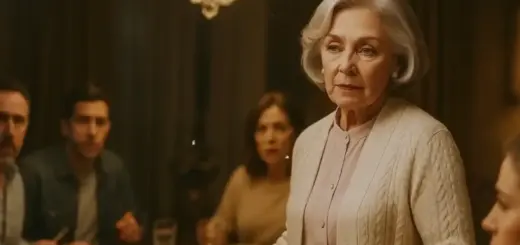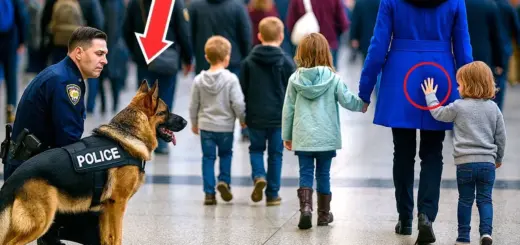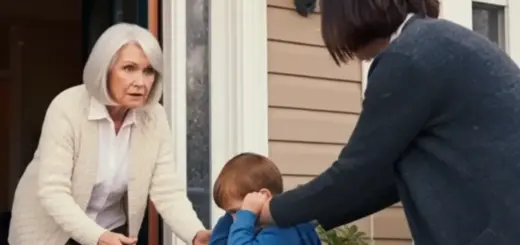The smell of bitter almonds wafting from the cup of hot chocolate instantly chilled my blood. Monica had served it to me with that sweet smile she’d perfected over 30 years, but something in her eyes shone with a coldness I had never seen before. Without her noticing, while pretending to look for sugar in the pantry, I switched my mug with that of David, her husband, who had gone to the restroom and left his hot chocolate untouched on the table.
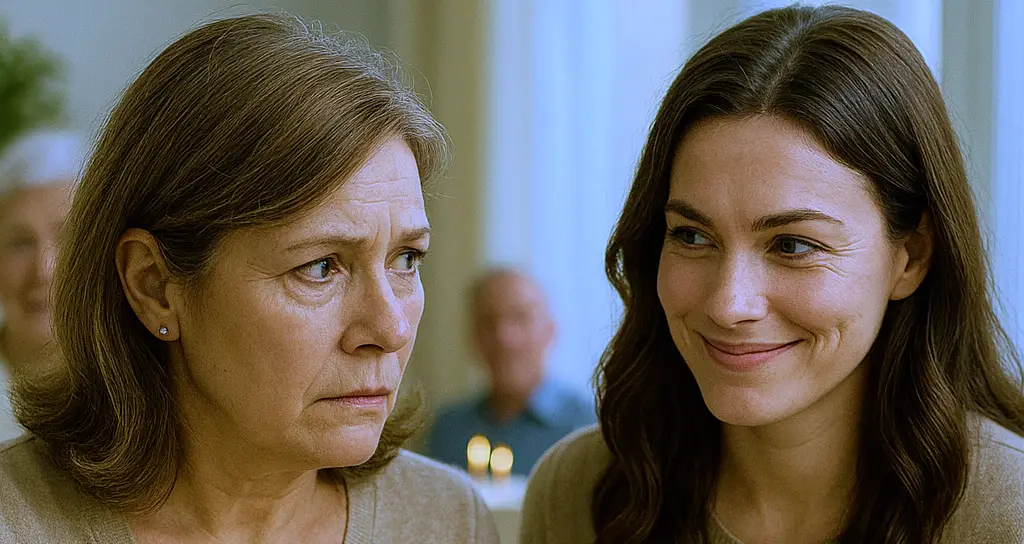
20 minutes later, the gut-wrenching screams coming from the kitchen confirmed what my maternal instinct had suspected. My own daughter had tried to murder me. David was convulsing on the kitchen floor, foam coming from his mouth, and his eyes completely dilated.
Monica was screaming with a desperation that seemed genuine, kneeling next to her husband of five years, while I dialed 911 with hands that trembled as much from shock as from adrenaline.
At 67 years old, after having single-handedly raised an adopted child who had come into my life traumatised and broken, I never thought I would be witnessing that same child trying to kill me.
«He’s dying!» Monica yelled, tears streaming down her perfectly made-up cheeks. «David, please don’t die. Mom, do something!»
But as I watched her perform her grief, something in my analytical mind, the same mind that had made me a successful accountant for 40 years, began to process details that didn’t fit. Why had Monica insisted so strongly that I drink the hot chocolate right away? Why had she prepared exactly three mugs when she knew David never drank hot chocolate in the afternoon? And why, despite her hysterical screams, was there not a single real tear in her eyes?
The paramedics arrived in eight minutes that felt like eight hours. While they worked frantically to stabilise David, one of them asked me what he had eaten or drunk in the past few hours.
«Hot chocolate,» I replied automatically, but then corrected myself. «Well, he drank hot chocolate. I didn’t get to finish mine.»
«Who prepared the hot chocolate?»
I looked at Monica, who was sobbing theatrically while the paramedics prepared David for transport. «My daughter.»
The paramedic wrote something in his notebook and looked at me with an expression I couldn’t decipher. «We’re going to take him to the general hospital. Can you bring any remains of what he drank?»
Monica immediately offered to collect the mugs, but I stopped her with a firmness that surprised me. «I’ll handle it.»
In the kitchen, while Monica accompanied David to the ambulance, I examined the three mugs with completely new eyes. My mug, the one that had originally been for me, was completely empty. David’s mug, the one I had barely touched, had traces of a thick liquid at the bottom. The third mug, the one that was supposedly originally for David, was untouched, with a strange oily layer floating on the surface.
I poured the remnants of the three mugs into separate jars and stashed them in my bag before following Monica to the hospital. As I drove behind the ambulance, my mind raced through 30 years of memories that now seemed tinged with a new and horrible perspective.
Monica had come into my life when I was 37 years old and had lost all hope of being a mother. I had spent a decade trying to get pregnant with my late husband Robert, and after his death in a car accident, I had decided to adopt. The social workers had introduced me to Monica as a five-year-old girl who had suffered severe trauma.
She had witnessed her parents’ death in a fire and needed a patient, loving mother, who could help her heal. I had been that mother. I had dedicated 30 years of my life to loving, protecting, and healing a girl who arrived mute, scared, and seemingly broken.
I had paid for years of psychological therapy. I had changed my career to have a more flexible schedule. I had turned down romantic relationships because Monica needed all my attention. And now, as I followed the ambulance carrying my daughter’s poisoned husband, I realised that maybe I had been protecting a predator for three decades.
At the hospital, while the doctors worked to save David’s life, Monica clung to my arm with that emotional dependence she had shown since childhood. «Mom, what are we going to do if David dies? I can’t live without him.»
But for the first time in 30 years, I didn’t feel the automatic impulse to comfort my daughter. Instead, I observed her with clinical eyes, searching for signs of the truth behind her performance.
«Monica,» I said calmly, «I need to ask you something very important.»
«What, Mom?»
«What did you put in the hot chocolate?»
Her expression changed so quickly that if I had blinked, I would have missed it. For a split second, I saw something cold and calculating cross her face before the mask of pain returned. «What do you mean? I only put in chocolate, milk, and sugar.»
«Monica, the hot chocolate smelled like bitter almonds.»
«Mom, you’re in shock. Sometimes trauma makes us imagine things.»
But I was no longer the naive mother I had been for 30 years. I was a 67-year-old woman who had just realised she had raised a monster.
As I waited for news of David in the emergency room, my mind automatically transported me back to that first night in August of 1993, when Monica arrived at my house in the suburbs of Phoenix. The social worker, Jane Miller, had prepared me to receive a severely traumatised child.
«Hope,» Jane had told me while we reviewed the adoption papers, «Monica is a special girl who needs a lot of patience. She witnessed her parents’ death in a fire and hasn’t spoken a single word since then.»
The girl who walked into my living room that night was small for her five years, with nearly white blonde hair and huge blue eyes that seemed to have seen too much for her age. She wore a pink dress that was too big for her and carried a faded and dirty stuffed rabbit.
«Hello, Monica,» I had said, kneeling down to her level. «I’m Hope. From now on, this is going to be your home.»
Monica looked at me in silence for long minutes, then she walked slowly toward me and placed her small hand on my cheek. It had been such a tender, touching moment that I started crying immediately.
«Mummy,» she had whispered in a small broken voice. «Are you my new mummy?»
During the first few weeks, Monica had been the perfect child. Polite, affectionate, grateful for every little kindness. She started talking more. She started smiling. She started calling me «Mom» with a naturalness that filled my heart.
But she also began to display behaviours that worried me, though at the time I interpreted them as normal symptoms of trauma. I found my cat, Princess, dead in the backyard a week after Monica arrived. The veterinarian said she had been poisoned, probably by eating something toxic someone had left in the yard.
Monica had cried inconsolably during the funeral we held for the cat. Two weeks later, the fish in my aquarium were found floating dead. Monica had suggested that maybe they had eaten something bad and insisted we buy new fish immediately so the house wouldn’t feel so empty.
A month later, my neighbour found her dog poisoned in her own yard. Monica had been playing with the dog that very afternoon. But I had been so in love with the idea of being a mother, so determined to heal this broken child, that I had rationalised every incident.
Animals get accidentally poisoned all the time. Coincidences happen. Monica was just a traumatised child who needed stability and love.
The first time I suspected something was really wrong was when Monica was eight years old. My sister, Carol, had come to visit us for Monica’s birthday, bringing gifts and a lot of enthusiasm to meet her new niece.
«She’s beautiful,» Carol had whispered to me as we watched Monica play in the yard. «But there’s something in her eyes that gives me the chills.»
«What do you mean?»
«It’s like she’s evaluating me, like she’s deciding whether she likes me or not. It’s very… calculating for an eight-year-old.»
That night, Carol became violently ill after dinner. Vomiting, diarrhoea, high fever. We had to take her to the hospital, where the doctors said it was probably food poisoning.
«That’s weird,» Monica had commented in an innocent voice. «We all ate the same thing, but only Aunt Carol got sick.»
Carol never came back to visit. When I asked her why, she would say she was too busy with work. But I knew there was something more.
At age ten, Monica had accidentally pushed a classmate down the school stairs. The girl had broken her leg and had to wear a cast for months.
«It was an accident, Mom,» Monica had insisted with tears in her eyes. «I was just walking and she tripped.»
But the school principal had told me privately that other students had seen Monica deliberately push the girl. At age 12, she had started stealing money from my purse, small amounts at first, then larger amounts. When I confronted her, she denied everything with such absolute conviction that I began to doubt my own sanity.
By age 15, she had started manipulating her teachers into calling me to complain about her behaviour. Then she would convince me that they were being unfair to her because they didn’t understand her childhood trauma.
At age 18, she had married a 40-year-old man who died in a car accident six months later. Monica inherited all his money. At 23, she had married another older man who died of a heart attack two years later. Another substantial inheritance.
And now, at 35 years old, David was fighting for his life after drinking hot chocolate that smelled like bitter almonds.
A doctor approached us in the waiting room. «Family of David Miller?»
«I’m his wife,» Monica said immediately. «How is he?»
«He’s stable but critical. We have detected dangerous levels of cyanide in his system.»
«Cyanide?» Monica feigned shock. «How is that possible?»
The doctor looked directly at me. «Ma’am, did you prepare the food or drink that the patient consumed today?»
«No,» I replied clearly. «My daughter prepared everything.»
For the first time in 30 years, I was not protecting Monica from the consequences of her actions.
Dr Thompson, an older man with a serious expression, led us to a private room to talk about David’s condition. Monica clung to my arm as she had done all her life when facing difficult situations. But this time, her touch caused me nausea instead of maternal tenderness.
«Mrs Miller,» the doctor told Monica, «your husband has been poisoned with cyanide. It’s a very specific substance that is not accidentally found in common foods or drinks.»
«Cyanide?» Monica sobbed with perfect acting. «But how? Where could he have gotten cyanide?»
«That is exactly the question we need to answer. Did your husband have access to industrial chemicals? Did he work in photography, metal cleaning or some laboratory?»
«No, no, nothing like that. David is an accountant. He works in a regular office. I don’t understand how he could have been poisoned.»
The doctor looked at me. «Ma’am, you were present when this happened. Did you notice anything unusual in Mr Miller’s behaviour? Anything he ate or drank that could explain this?»
I looked at Monica, who was watching me with those blue eyes that she had learned to use as weapons of manipulation. For the first time in 30 years, I decided not to protect her.

